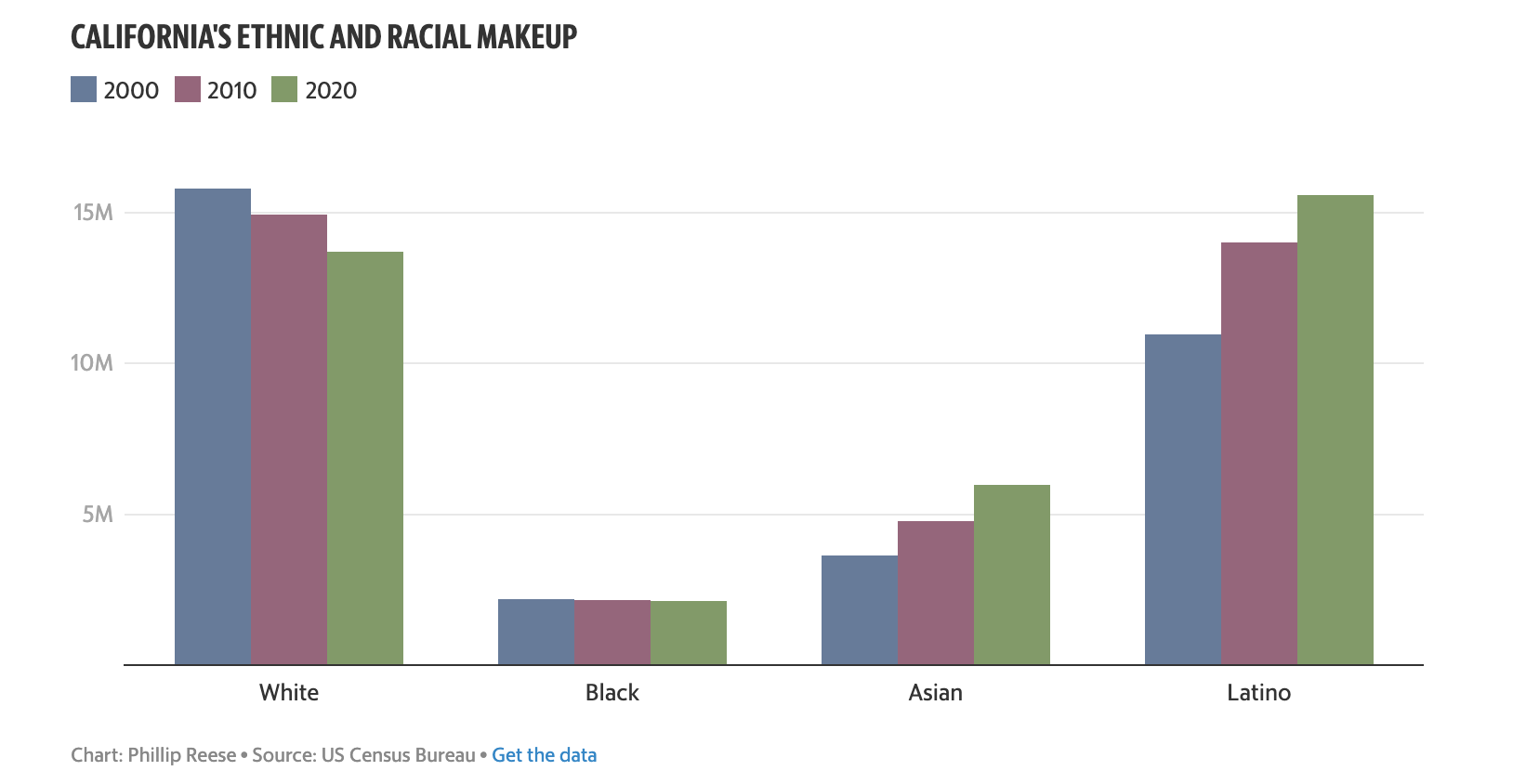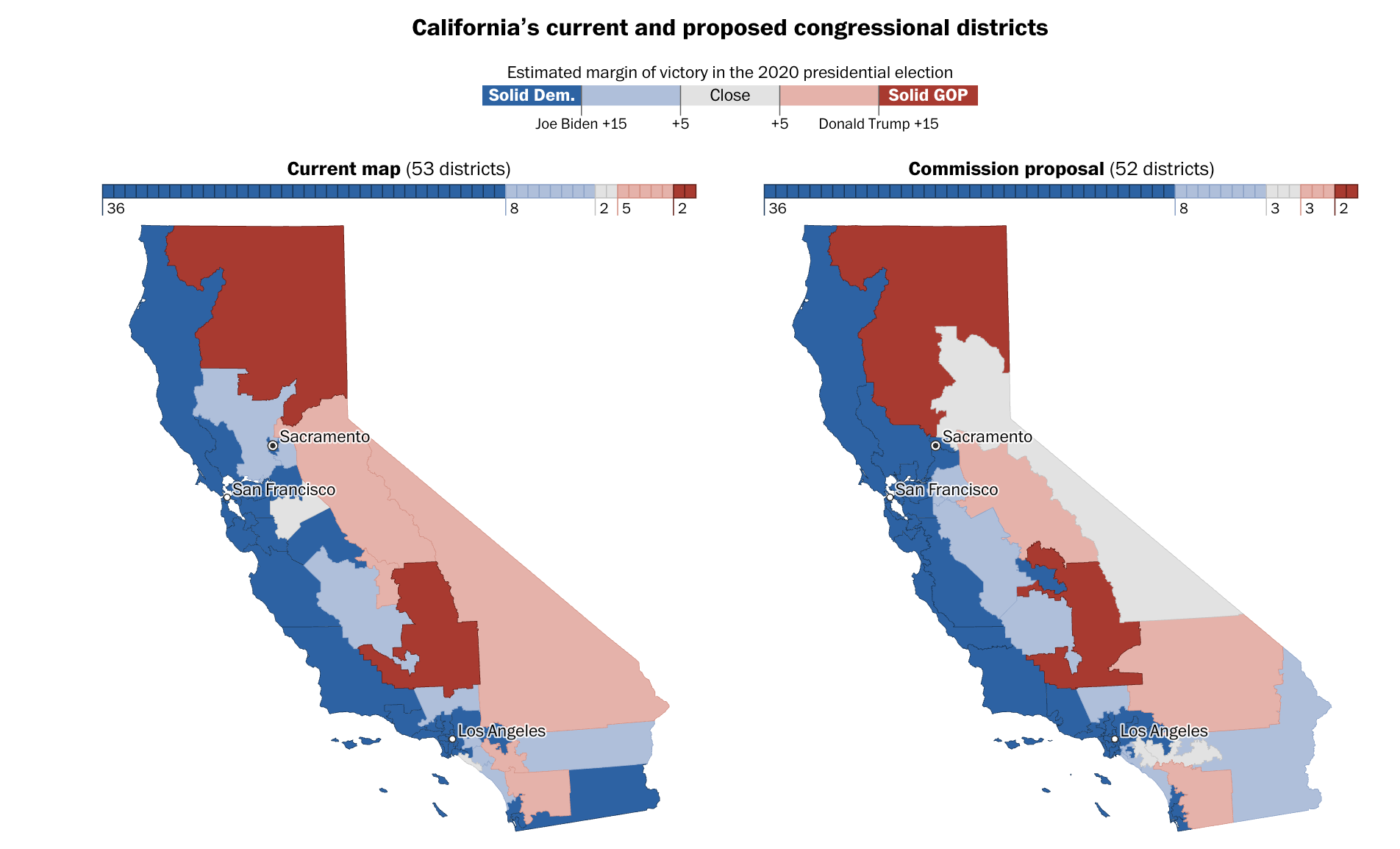By Josie Huang
Published Nov 2, 2022 1:04 PM
The Golden Dragon in Chinatown is a go-to dim sum spot for tender chicken feet and generous servings of har gow. Lately it’s also the place to snag endorsements in the race for Los Angeles mayor.
In September, Congressmember Karen Bass stoodon a stage adorned by a golden dragon and a phoenix alongside prominent Asian American Democrats, including Attorney General Rob Bonta and fellow U.S. Rep. Judy Chu.
Weeks later, developer Rick Caruso would step onto the same stage, joined by backers from the Chinese, Thai, and Korean American chambers of commerce.
The very different set of endorsements exemplify the kind of inroads each candidate has made in the Asian American Pacific Islander community.
She Is An ‘Ally’ Against Hate … He Has ‘Business Sense’
Bass, a former community activist, has sewn up the support of the AAPI Democratic establishment, including all the local Asian American Democratic clubs. Supporters repeatedly point to her political experience and record of working across racial lines.
“Karen Bass has been an incredible ally in the fight against anti-Asian hate,” said Chu, whose legislation addressing the rise in bias attacks during the pandemic drew support from Bass, the former chair of the Congressional Black Caucus.
Caruso, a Republican-turned-Democrat and former city police commissioner, has enjoyed the backing of AAPI business leaders, many of them immigrants, who admire his success building shopping centers like The Grove and The Americana at Brand and envision him cutting through red tape.
“He has business sense,” said Jimmy Woo, who represented the Millennium Biltmore hotel at the event with the chambers of commerce. “He also doesn't kiss people's ass. He doesn't need to.”
‘Asian Americans Matter’
In L.A. there are enough AAPI voters to help swing a race. They make up nearly 10% of the city electorate, according to Pomona College political scientist Sarah Sadhwani, who analyzed ballot-tracking data.
As a group, Asian Americans are becoming more politically active. Since L.A. last got a new mayor — almost 10 years ago — three Asian Americans have been elected to the city council. For decades, there were none following the departure of Councilmember Michael Woo in 1993.
The top issues for AAPI voters are the same as for other Angelenos: homelessness, the economy and public safety, according to a survey from the Pat Brown Institute at Cal State Los Angeles.
But the cultural and linguistic differences among Asian communities means that political campaigns historically don’t bother to engage. Not so in this contest.
“I think one of the exciting things to come out of this race is that Asian Americans matter,” said Sadhwani, who co-led the Pat Brown Institute survey.
With a war chest expected to top $100 million, Caruso has been able to target Asian voters with in-language mailers and TV ads, like this one in Korean:
To win over Filipino Americans, he hosted a campaign event at The Americana in Glendale that drew hundreds and doubled as a promotional event for the film Easter Sunday, the first big-studio film featuring a mostly Filipino American cast.
“I’m just proud of the fact that we can give a voice to the community that really is not heard in Los Angeles,” Caruso said in a video posted on social media.
Bass, who’s being outspent more than tenfold, has had to rely more heavily on earned media from ethnic news outlets such as the Chinese-language World Journal and The Filipino Channel.
She’s also made visits to important AAPI hubs such as the Hollywood Sikh Temple and held events like last week’s roundtable with AAPI leaders from organizations including Asian Americans Advancing Justice-Southern California and the Koreatown Immigrant Workers Alliance.
One of the topics of discussion was unhoused AAPI populations. “Asians are homeless, too, but [AAPI leaders] feel like they have been invisible,” Bass told LAist. “They're worried that their numbers are not focused on.”
Bitterness Over ‘92
The only Asian-language ads that Bass has bought are in Korean, according to her campaign — underscoring which community she thinks needs the most convincing about her candidacy.
While Caruso has burnished his image in the Korean American community — landing the endorsement of the Korea Daily and a gig as the grand marshal at the Los Angeles Korean Festival parade — Bass has been haunted by a comment she made decades ago.
When civil unrest rocked the city in 1992 following the acquittals of the LAPD officers who beat Rodney King, Bass, then a community activist, used the word “miracle” to describe the destruction of liquor stores. Many were owned by Korean Americans.
Korean American supporters of Caruso have continued to voice bitterness toward Bass, who as co-founder of the Community Coalition worked to keep down the number of liquor stores in South L.A. after the unrest. The area had been awash in liquor stores, and Bass’ group responded to research on the health impacts of alcohol abuse by launching an initiative to convert stores destroyed during the unrest into other types of businesses.
"We don't think it is acceptable to have a liquor store on every corner," Bass toldThe Christian Science Monitor in 1993. "The point is not to drive businesses away but to have businesses that are productive to the community."
In an interview earlier this year with the Korea Daily, Caruso said “Bass should be ashamed” of her remark, and said she “must” apologize.
“My opponent would like to stir the pot again because he sees that in his interest,” Bass told us. “To me, what is in the interest of the city is that the city come together.”
The Congressmember has positioned herself as a uniter after audio leaked last month of city council members making racist and homophobic comments.
Bass convened a coalition of civic and faith leaders — including several from the AAPI community — to “move past the politics of divide and conquer.”
‘Will We Be Represented?’
There’s little indication of which way AAPI voters may be leaning except for one poll conducted in late September by the UC Berkeley Institute of Governmental Studies and co-sponsored by the LA Times. It showed a wide majority of likely Asian American voters favor Caruso — by a margin of 51% to 29%.
The poll had a small sample size but even so, the results may indicate Caruso’s advertising blitz is resonating with voters used to being neglected, said Sadhwani.
“Over the last 20 years, when we survey Asian Americans, they consistently say that no one bothers to knock on their door or send them a flyer even though they are registered voters,” she said. ”Having personal contact of some sort matters to turnout.”
Bass and her supporters say the millions of dollars Caruso is pouring into advertising would be better spent on affordable housing that L.A. desperately needs, something he has never developed.
LAist was unable to arrange an interview with Caruso in time for this story.
With ballots already being cast, some AAPI civic leaders, like Nancy Yap, are already looking to a post-election future.
Yap is executive director of CAUSE, a nonprofit that promotes AAPI leadership that interviewed the candidates earlier this year about issues such as homelessness and anti-Asian attacks:
In the videos, the candidates place value on inclusion. Yap will be closely watching how campaign rhetoric translates into action in the new mayor’s office.
“Will we be represented in their administration, and [will] the diversity of our communities [be] represented in their administration?” she said.
Beyond questions of staffing, “it's also really knowing us and willing to engage in conversation with us,” Yap added.







